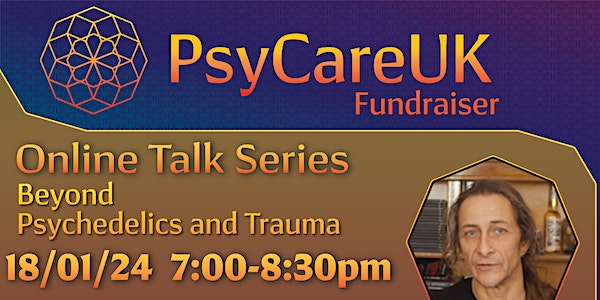Actions Panel
Multiple dates
Seminars intended to spark fresh thinking & debate, featuring cutting-edge UCL research & facilitating new connections between scientists.
When and where
Location
Online
About this event
Children and young people’s mental health is an area of considerable societal need and has been the focus of a number of recent research council and charity funding initiatives. It is also one of the UCL Mental Health Research Strategy priority areas. UCL has substantial research strengths, across multiple domains, that can and should be at the forefront of leading innovative, cross-disciplinary work in this area.
The UCL Catalyst seminar series is intended to spark fresh thinking and debate, featuring cutting-edge UCL research relevant for children and young people’s mental health and facilitating new connections between scientists working in different disciplines.
The Zoom link will be provided nearer the time of the seminar.
Upcoming Seminar:
Autism, Neurodiversity, and Mental Health
Wednesday 14 June, 1-2:15pm
Chair: Professor Liz Pellicano, Professor of Autism Research, UCL Division of Psychology and Language Sciences
Speakers:
Dr Jeanne Wolstencroft: Dr Jeanne Wolstencroft is a Research Fellow based at the Great Ormond Street Institute of Child Health at UCL and a member of the UCL CYP MH Early Career Research Committee. Jeanne is currently investigating changes in the mental health and behaviour of children with rare genetic disorders in the national IMAGINE ID study (Intellectual Disability and Mental Health: Assessing the Genomic Impact on Neurodevelopment). Jeanne is a co-investigator on the Children’s Autism Technology Assisted Assessments (CHATA) project which aims to digitise autism assessment procedures for families from diverse ethnic backgrounds. She has also received a Child Mental Health Research Strategic Grant to co-produce a digital mental health intervention for children with rare genetic disorders and irritability.
Professor Will Mandy: Professor Will Mandy is a clinical psychologist and professor at University College London (UCL), where he is joint director of the UCL clinical psychology training course, the largest of its kind in Europe. His work aims to improve the recognition of autism, and to develop new interventions to help autistic people. He has a particular research interest in improving the identification and care of autistic girls and women, who are currently at high risk of going unnoticed and unhelped by clinical and educational services. He also studies autistic traits in non-clinical populations, and the role these can play in the development of a range of common childhood, adolescent and adult mental health problems. With clinical colleagues, he has helped develop and trial several interventions to help autistic young people make important life transitions and to teach young people about their autism diagnosis, with an emphasis on fostering their sense of self-worth and pride.
Jack Welch: Jack Welch is an autistic advocate, who works in Dorset County Hospital. Jack has several roles alongside the full-time role, including Chair of Mencap’s Voices Council, which is a group of experts by experience that support the governance in the organisation, and is a trustee of Ambitious about Autism. As a member of AaA’s Youth Council, he coauthored the award-winning ‘Know Your Normal’ research, jointly produced with UCL’s Centre for Research in Autism and Education, which was published in 2017. He is also a member of Autisica’s Network Steering Committee and NHS England’s Learning Disability and Autism Advisory Group.
Talk abstracts:
Dr Jeanne Wolstencroft: The national IMAGINE ID programme of research (Intellectual Disability and Mental Health: Assessing the Genomic Impact on Neurodevelopment) recruited 3,000 children and young people with a rare genetic disorder and an intellectual or developmental disability (ID). The aim of the IMAGINE 2 longitudinal study is to understand the developmental trajectory of the wellbeing of the cohort, in order to improve clinical care. The main objective in our research programme to date has been to test hypotheses regarding genetic and environmental factors that could influence the risk of a mental health disorder developing in individuals with ID of identified genetic aetiology. This talk will focus on IMAGINE children with an autism spectrum condition, which affects 35% of the IMAGINE cohort. We will unpick the drivers of neuropsychiatric risk in autistic IMAGINE children, examine the associations between parent and child mental health and present preliminary longitudinal data on their mental health trajectories.
Professor Will Mandy: Autistic young people have a high chance of developing mental health difficulties, but the reasons for this are currently poorly understood. This gap in knowledge constrains our ability to provide effective treatments and to prevent the development of autistic mental health problems in the first place. In this talk I highlight the value of the ‘neurodiversity paradigm’ for guiding research into the determinants of autistic mental health. This approach views autism as a form of neurodiversity, rather than a disorder. It encourages us to understand outcomes (such as the development of a mental health problem) not simply as the direct consequence of an individual’s ‘deficits’ and ‘impairments’; but rather as resulting from the dynamic interplay between, on the one hand, an autistic individual’s characteristics and, on the other hand, the environment in which they live. To illustrate the value of approaches that take greater account of environment influences on autistic mental health, I present findings from the Millennium Cohort Study. This is a UK birth cohort of ~19,000 young people, amongst whom we have identified 581 diagnosed autistic by 14 years. I will share longitudinal analyses examining the relationships between environmental factors (receiving a late autism diagnosis, parental mental health) and trajectories of mental health in this nationally representative sample of autistic young people.
Jack Welch: Across autism and learning disability-centred research, it is not yet commonplace for people with lived experience that are empowered to work alongside researchers and unearth some of the answers which are yet not fully understood. For participants, there remains an unease about individual capacity and a gulf on some of the research objectives that are important to improvement of quality of life. It was back in 2016 that Autistica’s number one research priority asked: “Which interventions improve mental health or reduce mental health problems in people with autism?” We’re not closer to finding a silver bullet, but as highlighted by my fellow speakers, we have to see the wider picture first before we present the solutions. In this talk, I will discuss three factors which I wants to closely emphasise and begin to have a more ambitious approach to the interventions that can be offered: 1) The urgency of multi-disciplinary, wraparound services that address the wider family context for autistic people and can meet the support pathway identified; 2) Addressing poor mental health through the wider social context contributes and what results in poorer wellbeing; 3) Overcoming the inevitability of developing mental illness by the nature of being autistic (and co-occurring learning disability) alone.
Report this event
https://www.eventbrite.com/e/ucl-catalyst-seminar-series-in-children-and-young-peoples-mental-health-tickets-148769291957




